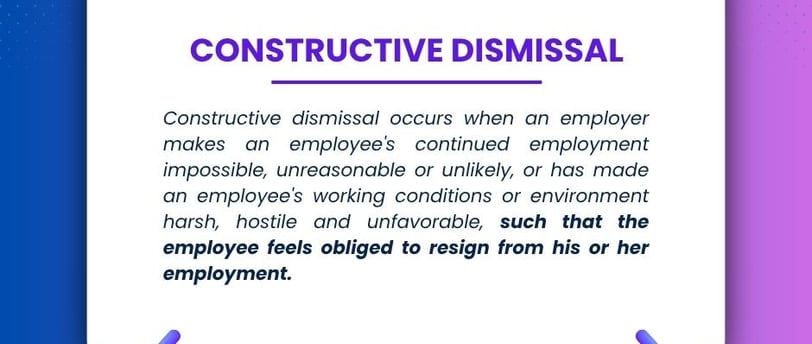Workplace Harassment & Employer Negligence: The LBC Express Ruling
Workplace safety and dignity are fundamental rights. When these are jeopardized, especially by a superior, and an employer fails to act with the necessary urgency and sensitivity, the consequences can be severe – not just for the employee, but also for the company. This stark reality was powerfully affirmed by the Supreme Court in the 2020 landmark case of LBC Express-Vis, Inc. vs. Monica C. Palco (G.R. No. 217101).
6/9/20252 min read


Why LBC Express Was Held Liable for Constructive Dismissal in a Sexual Harassment Case
Workplace safety and dignity are fundamental rights. When these are jeopardized, especially by a superior, and an employer fails to act with the necessary urgency and sensitivity, the consequences can be severe – not just for the employee, but also for the company. This stark reality was powerfully affirmed by the Supreme Court in the 2020 landmark case of LBC Express-Vis, Inc. vs. Monica C. Palco (G.R. No. 217101).
The Unfolding of a Hostile Work Environment
Monica C. Palco started her journey with LBC Express-Vis, Inc. as a customer associate. Her immediate superior, Arturo A. Batucan, the team leader and officer-in-charge, played a direct role in her employment. What began as uncomfortable flirting soon escalated into a disturbing pattern of sexual harassment.
The details are unsettling: Batucan would make sexually suggestive comments, hold her hand, touch her lap and shoulder, and even pull her bra strap, dismissing her protests as "jokes." The situation culminated on May 1, 2010, when Batucan cornered Palco and forcibly kissed her lips, not once, but twice. This act left Palco feeling deeply angry and afraid, compelling her to consider her safety at work.
The Employer's Delayed and Insensitive Response
Palco promptly reported the incident to LBC's Head Office just days later. She was advised to consider a transfer while they investigated. However, what followed was a series of alarming delays and an apparent lack of genuine concern from LBC management:
Prolonged Inaction: It took LBC 41 days to issue Batucan a Notice to Explain. The administrative hearing itself only took place on July 20, 2010 – a staggering 78 days after Palco first reported the incident.
Continued Exposure: During this entire period, Batucan continued to report for duty as usual. Palco, on the other hand, had to consume her precious vacation leaves just to avoid encountering her harasser. This placed the burden of adjustment squarely on the victim, not the perpetrator.
Dismissive Attitude: Disturbingly, Palco's mother, who accompanied her, recounted that an LBC Area Head downplayed the incident, questioning the lack of "bruises" or "witnesses," a response that is deeply insensitive and re-victimizing to survivors of sexual harassment.
Late Resolution: Batucan was only suspended for 60 days with a "last warning" over four months after the complaint was initially filed. By this time, Palco had already felt compelled to resign.
Constructive Dismissal: When Resignation Is Not a Choice
Palco's resignation on May 14, 2010, was not voluntary. As the Supreme Court eloquently articulated, constructive dismissal occurs when "an employer makes an employee's continued employment impossible, unreasonable or unlikely, or has made an employee's working conditions or environment harsh, hostile and unfavorable, such that the employee feels obliged to resign from his or her employment."
The Court rejected LBC's arguments that Batucan was merely a co-employee or that the delay was reasonable. It found that Batucan, as a team leader and officer-in-charge, held a supervisory position, placing him within the managerial staff. More crucially, while LBC might not have explicitly authorized Batucan's acts, its failure to take immediate action upon being informed of the harassment effectively reinforced the hostile work environment.
The delay, the indifference, and the failure to protect Palco from further exposure to her harasser demonstrated LBC's "insensibility, indifference, and disregard for its employees' security and welfare." In essence, LBC's inaction compelled Palco to leave her employment, thus constituting constructive dismissal.
Disclaimer: This blog post provides general information and should not be considered legal advice. It is always best to consult with a qualified legal professional for specific situations and legal guidance.
